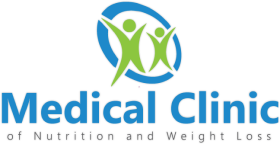Our Medical Clinic of Nutrition and Weight Loss team
advises you on the diet that considers
your needs, your tastes and your lifestyle
Protein Diets
During the diet, the priority is to protect all the muscles attached to your bones and vital organs, such as the heart, liver and kidneys. This protection is done with proteins.
Normally, your daily needs are 0.8g of protein per kilogram of ideal weight. These needs double and can go up to 1.5g of protein per kilogram of ideal weight during your diet. A protein deficiency would cause a drastic decrease of your muscle mass.
Which Diet to Choose?
Weight gain is more often due to an energy imbalance, i.e. we eat more calories than our body needs. The aim of the diet is therefore to reduce the number of calories absorbed. To lose a pound (500g) of fat, we must reduce our absorption intake by 3,500 calories.
Three different types of protein diets
This diet allows immediate and sometimes sensational weight loss. While satisfying appetite with Protein Meal Substitute (« PMS ») and avoiding a drop in your muscle mass, your daily nutritional needs are met.
During this diet(500 calories), you will not eat any meal during the day, but you will have all the essential nutrients to meet your vital needs. This includes easy-to-digest protein supplements with high biological value (BV) to protect your muscle mass, as well as vitamins, mineral salts, and fiber.
Also, some vegetables low in carbohydrate (sugar) will be allowed, as well as several beverages such as coffee, tea, herbal teas, and mineral water.
Very fast weight loss: 1.5 to 2 kilos (3 to 5 pounds) a week.
Very fast weight loss: 1 to 1.5 kilos (2 to 3 pounds) a week.
The Balanced Diet (between 800 and 1,000 calories), also known as Low Calorie Diet, allows a quick weight loss while meeting your nutritional needs and your tastes.
The goal of this diet is to keepnormal meals at the same time as decreasing your calories absorption. Your doctor will prescribe vitamin supplements and minerals if necessary.
Very fast weight loss: 0.5 to 1 kilos (1 to 2 pounds) a week
| Protein Fasting | Mixed Fasting | Balanced Diet | |
|---|---|---|---|
| Number of Proteins Women/Men (per day) |
5/7 | 2-3/5-6 | 1/1 |
| Allowed Meals (per day) |
none | 1-2 Restricted Meals |
3 Controlled Meals |
| Calories | 500 | 800 | 800-1000 |
| Weight Loss (per week) |
1.5-2 kg (3-5 pound) |
1-1.5 kg (2-3 pound) |
0.5-1 kg (1-2 pound) |
| Advantages | Immediate and spectacular weight loss | Rapid weight loss and reduced hunger | Change of eating habits |
How do these diets affect your weight loss?
When your body is restricted to a limited calorific intake,
it will seek a source of energy to continue to operate.
SUGARS (CARBOHYDRATES)
The first reflex of your body will be to tap into sugars. However, after 12 hours, all the sugar reserves in your liver, kidneys and muscles will be completely absorbed.
PROTEINS
(PROTIDES)
In addition to fat, your body will try to metabolize energy reserves through your muscles, but since you are consuming protein of high biological value (BV) in the form of Protein Meal Substitute (PMS), this will prevent your body to tap into your muscle mass.
FAT
(LIPIDS)
If your muscles and the small amount of sugar stored in your body are unavailable as a source of energy, only one source of energy will remain: the fat in your body.
By losing weight, fat releases ketone bodies (energetic substances) into your bloodstream that are used as energy sources. This fat will now serve as the main fuel for your body and you will melt.
